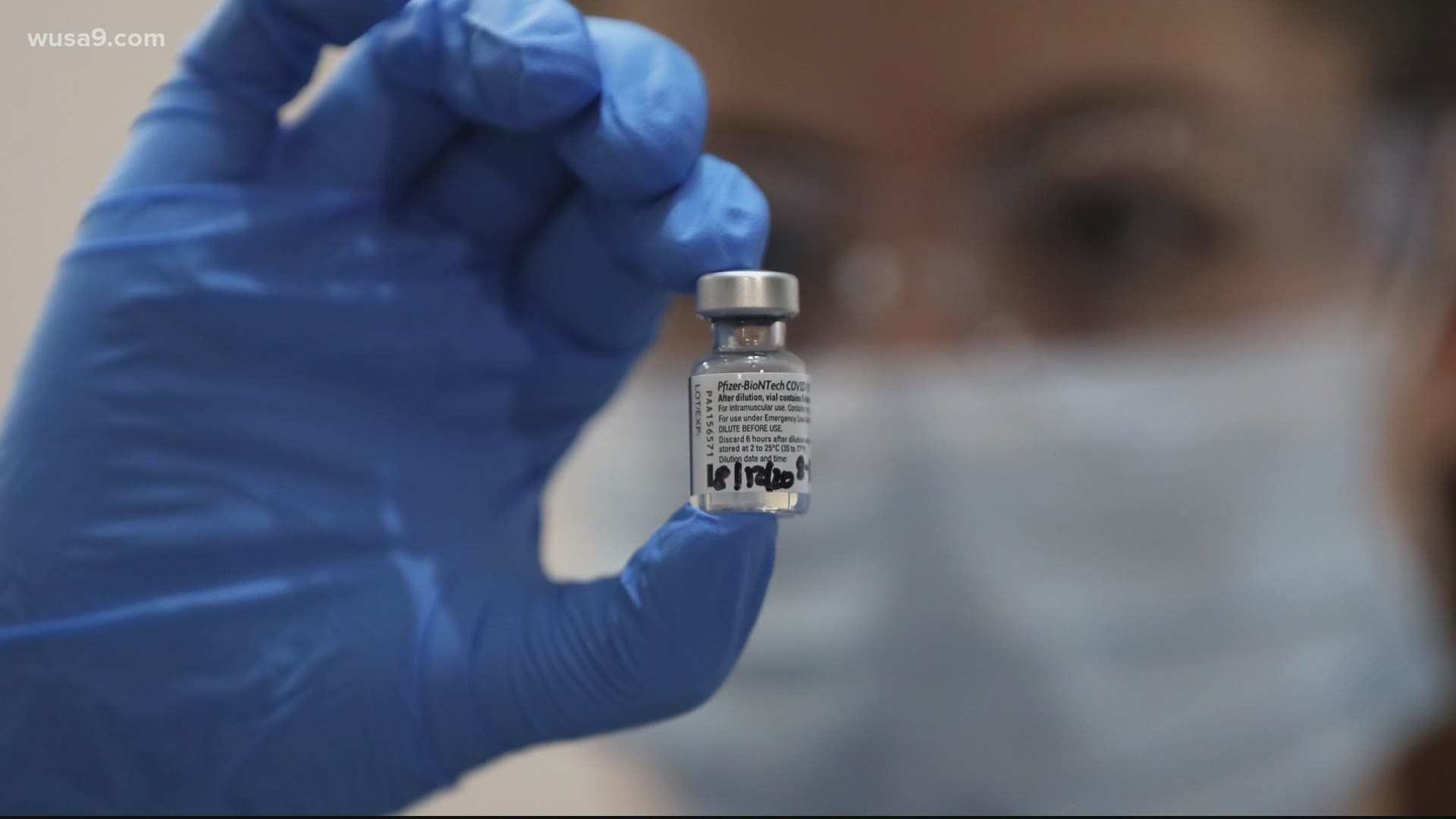WASHINGTON — The one-year anniversary of coronavirus hitting the DMV is fast approaching, and the Verify team has been busy getting you the answers.
We went straight to some of the top experts to answer the latest questions on vaccines and COVID-related questions, from distribution to common side effects.
The Verify team will be talking directly to the experts below on a special live stream, airing March 5 at 6:45 p.m. EST on our Facebook and Youtube pages, where we will be answering questions in real-time.
HOW TO ASK QUESTIONS: Have questions? Text the Verify team at 202-895-5599 or shoot us an email at VERIFY@WUSA9.COM. You can also fill out the contact form below which goes straight to the Verify team.

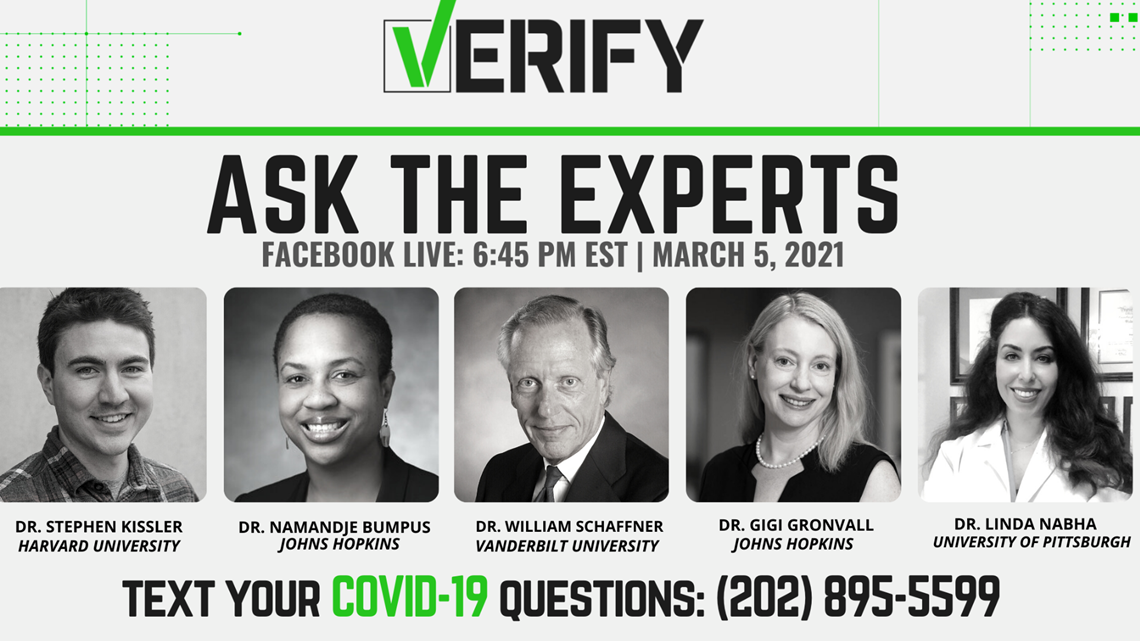
MEET THE EXPERTS:

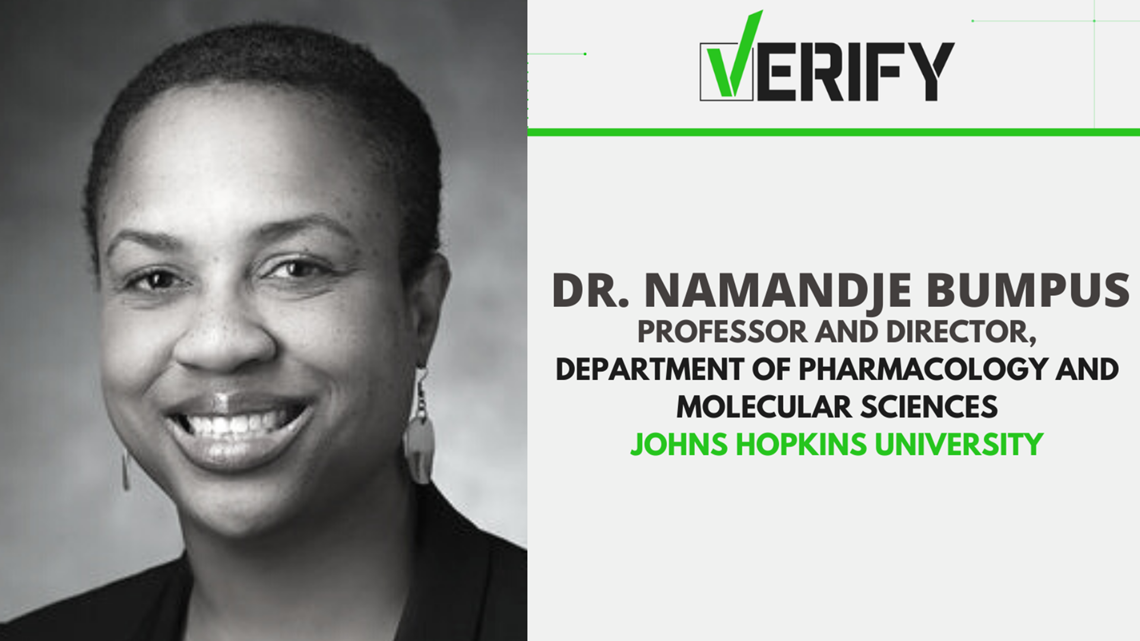
Dr. Namandje Bumpus has a Ph.D. in Pharmacology and is a Professor and the Director of the Department of Pharmacology and Molecular Sciences at Johns Hopkins University.
She is a pharmacologist and her laboratory research focuses on infectious disease drug development and understanding differences between people in how well medicines work. Follow Dr. Bumpus on Twitter.

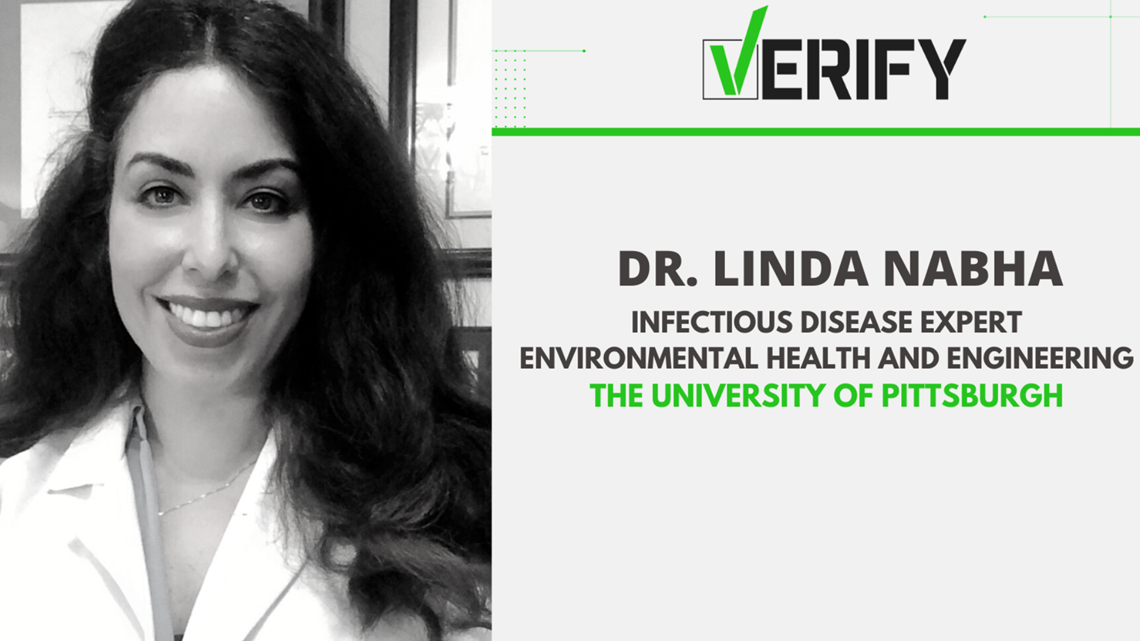
Dr. Linda Nabha, MD is an infectious disease expert at the University of Pittsburgh Medical Center.
Dr. Nabha is a clinical assistant professor of medicine focusing on COVID-19 disease and treatment in addition to general infectious diseases. You can also follow her on Twitter.


Dr. William Schaffner is a professor in the Division of Infectious Diseases at Vanderbilt University.
He is an infectious diseases specialist who works both in an academic research/teaching setting as well as in public health. He has a special interest in vaccines and their use in both children and adults.

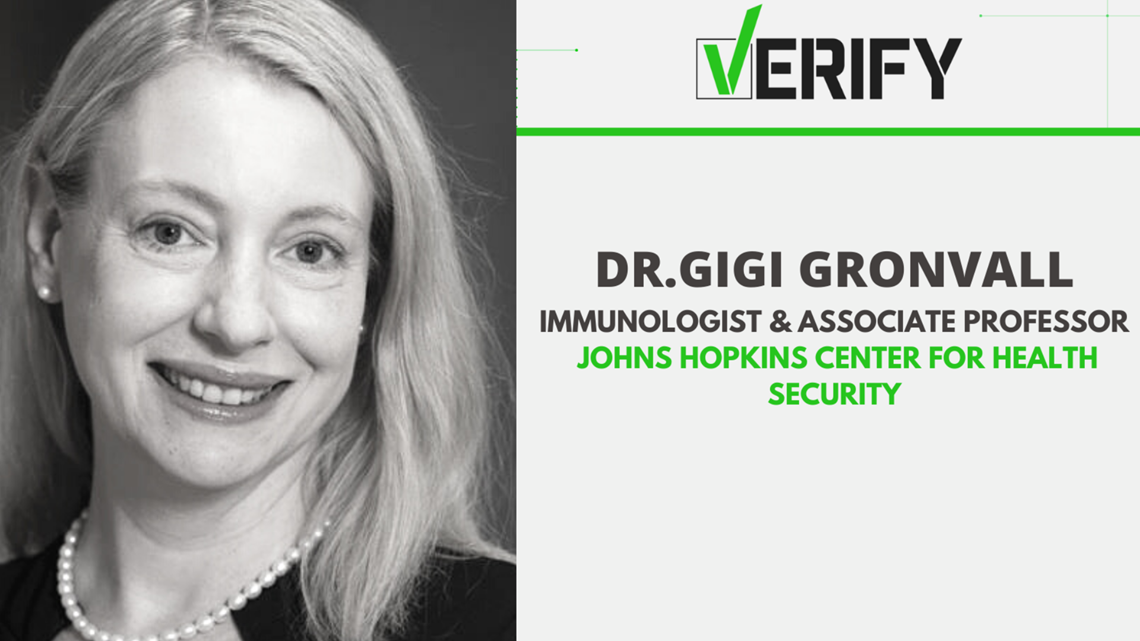
Dr. Gigi Gronvall has a Ph.D. in immunology and is an Immunologist and Associate Professor at Johns Hopkins University.
Dr. Gronvall is an immunologist with a lot of experience in biosecurity growing the Johns Hopkins Center for Health Security. She has written books about emerging biotechnologies and bioterrorism. During the COVID-19 pandemic, she's started a website called the “COVID-19 Testing Toolkit” that gives people information about diagnostic and serological tests and testing services.

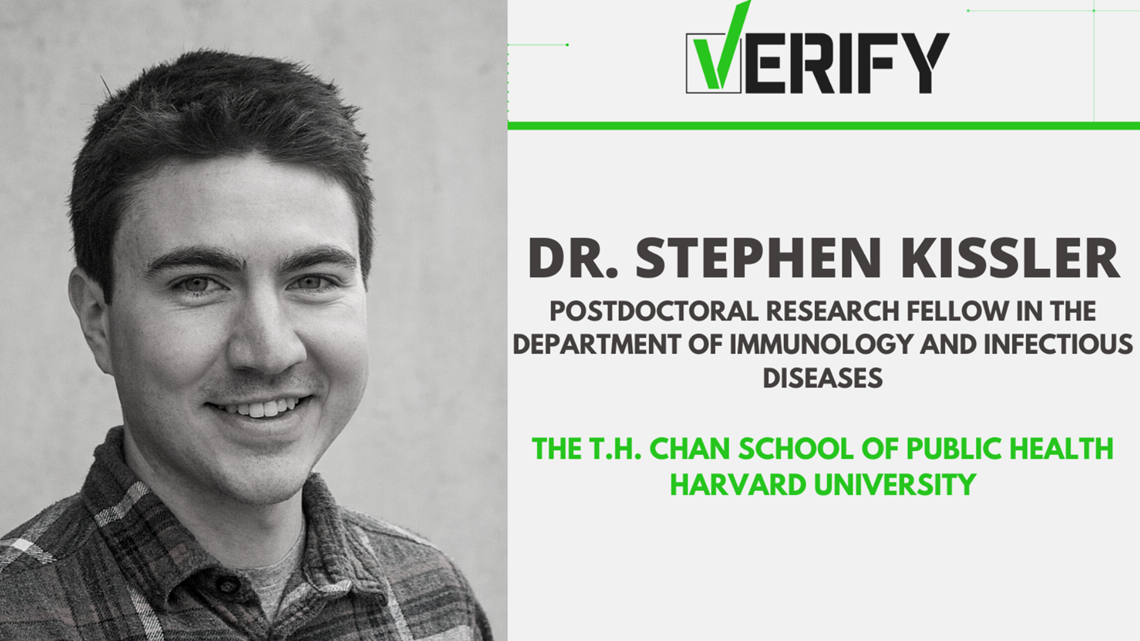
Dr. Stephen Kissler has a Ph.D. in Applied Mathematics and is a Postdoctoral Research Fellow in Immunology and Infectious Diseases at the Harvard T.H. Chan School of Public Health.
Dr. Kissler is an infectious disease epidemiologist who builds mathematical models to predict and manage epidemics. He specializes in respiratory viruses, including pandemic influenza and SARS-CoV-2. Follow Dr. Kissler on Twitter HERE.
We asked our experts: What do you think is the most harmful or pervasive piece of misinformation about COVID-19?
Dr. Bumpus: "That the COVID-19 vaccines are dangerous and were developed too quickly to be trusted."
Dr. Schaffner: "The most harmful piece of misinformation about COVID-19 is that it will just 'disappear.'"
Dr. Kissler: "The variations on "it's just the flu". Like all the most effective pieces of misinformation, this idea has been especially difficult to combat because it's partially true: COVID-19 is a seasonal respiratory virus that shares many clinical and epidemiological features with influenza, yet certain key differences, including its increased transmissibility and its increased severity, have made it a much more formidable enemy than seasonal influenza."
Dr. Gronvall: "That masks don’t work or that the virus doesn’t kill."
Dr. Nabha: "With Johnson & Johnson rollout of single shot, there is building concern that this is a second tier vaccine (which of course its not!)"
MORE ON VACCINES:
Which vaccines are on the market?
The FDA has approved three COVID-19 vaccines for emergency use: Pfizer-BioNTech, Moderna and Johnson & Johnson. Pfizer and Moderna's vaccines have unprecedented high efficacy rates of more than 94%. Johnson & Johnson's efficacy is slightly lower, 72% in U.S. trials, but even that rate is higher than most vaccines like the flu vaccine.
RELATED: VERIFY: Explaining how the Johnson & Johnson vaccine works and what makes it different from others
What are the common side effects?
The most common COVID-19 vaccine side effects are:
- Pain at the injection site
- Tiredness
- Headache
- Muscle pain
- Chills
- Joint pain
- Swollen lymph nodes in the same arm as the injection
- Nausea and vomiting
- Fever
What happens if you miss your second dose?
According to Dr. Kawsar Talaat, an infectious disease expert and vaccine researcher at Johns Hopkins, there’s little risk in “waiting too long,” because the first dose of the vaccine causes the body to start building immunity.
The Centers for Disease Control and Prevention recommends that the second dose of vaccines be administered within three weeks to one month, but stated that “there is no maximum interval between the first and second doses for either vaccine.”
Should you get the vaccine if you've already been sick with COVID-19?
The CDC says in the third section on their COVID-19 vaccine facts page that you should still get the vaccine even if you’ve already had COVID-19 and recovered.
The agency says that experts do not know how long someone is immune from getting sick again after recovering from the virus and that some early evidence may suggest it doesn’t last very long. They also don’t know how long immunity from vaccinations will last until they have more data.

